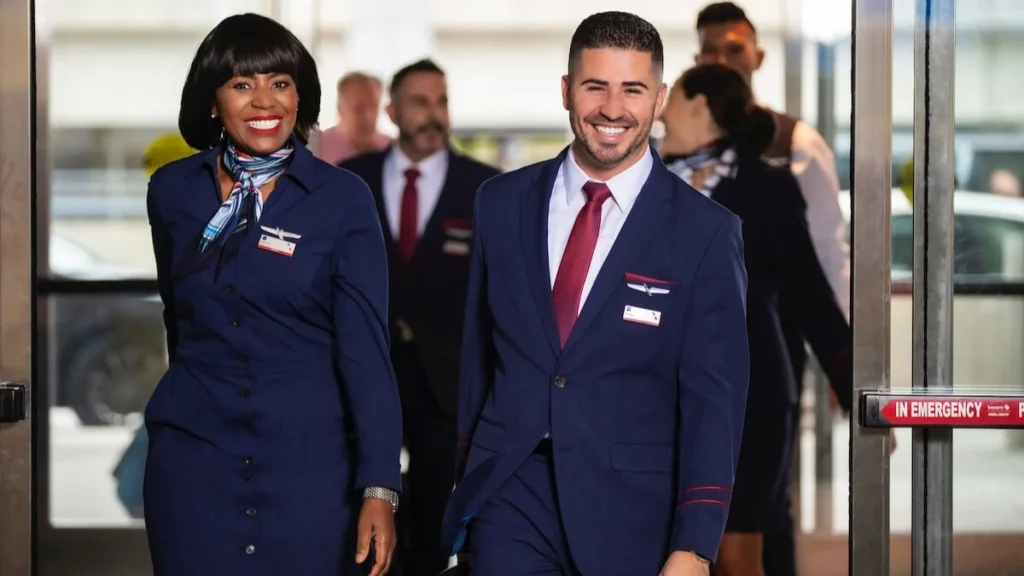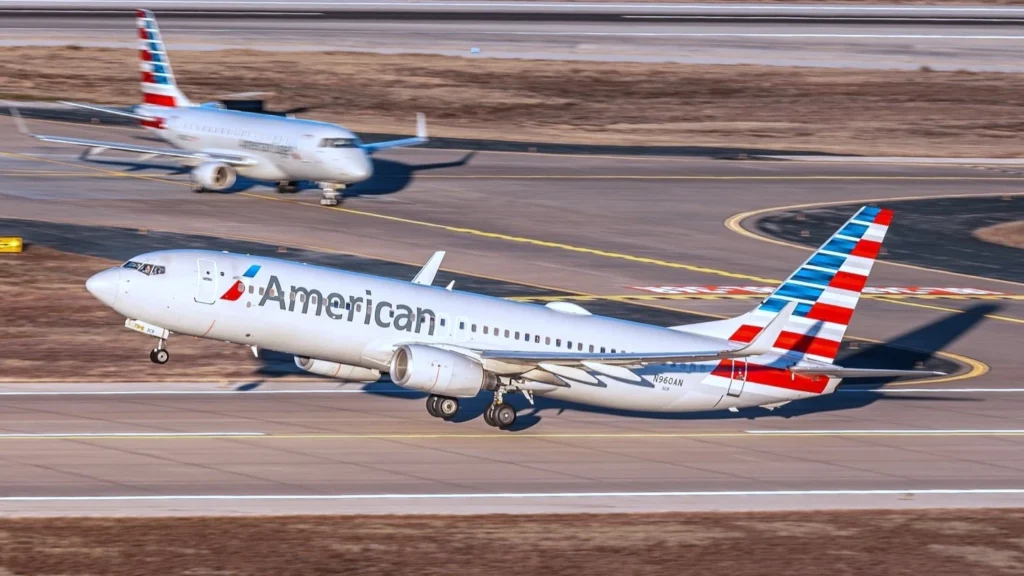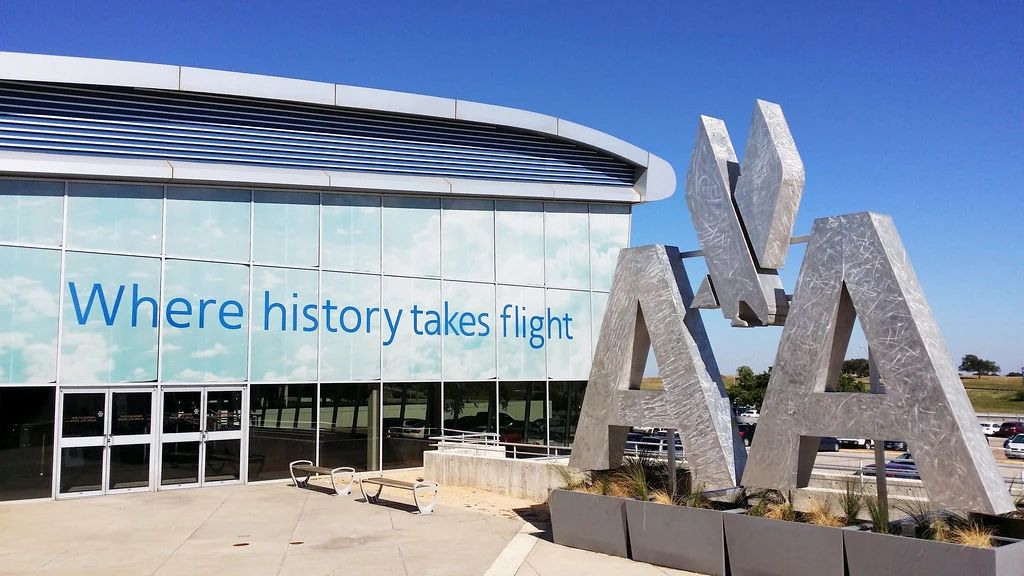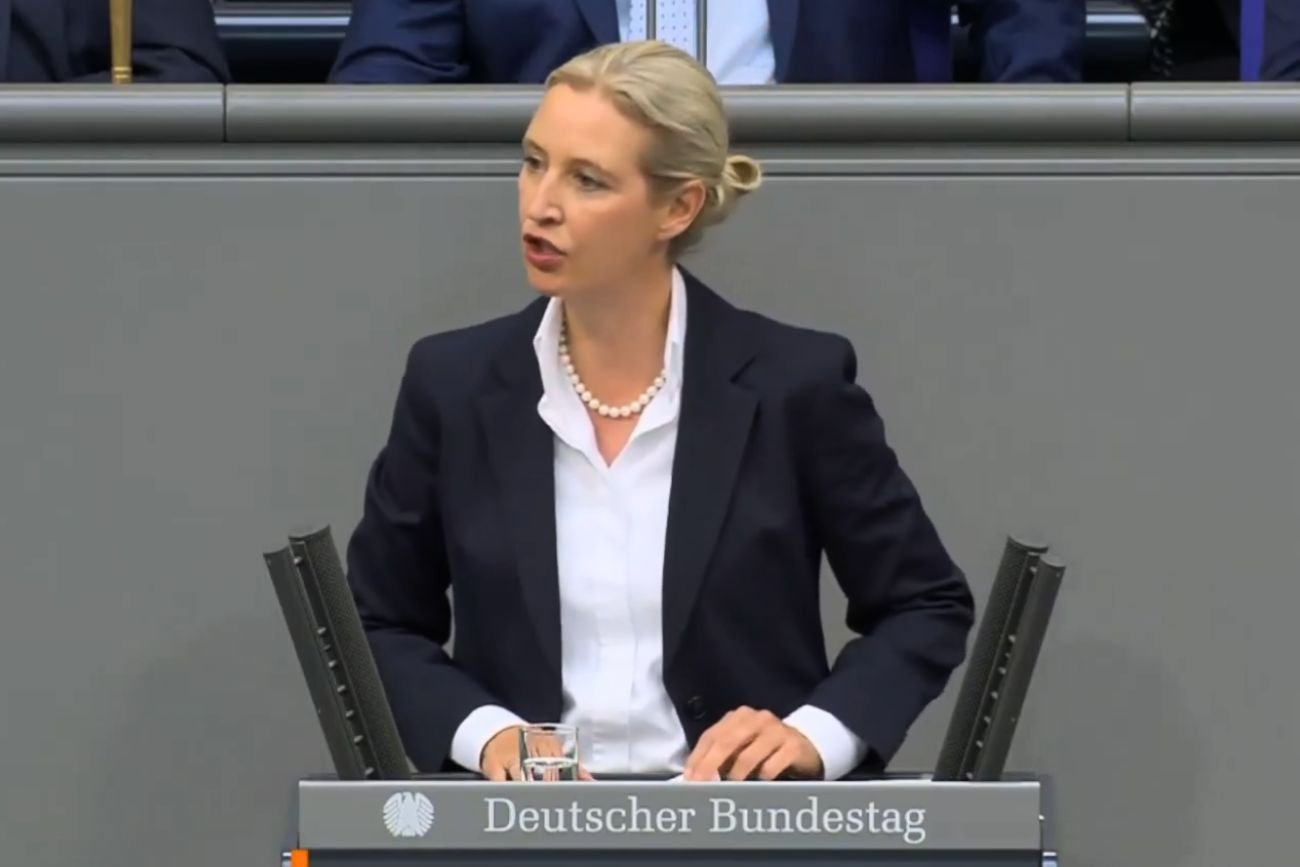
FORT WORTH- American Airlines (AA) has paused hiring flight attendants for Summer 2025 amid growing economic concerns across the United States.
The airline, headquartered at Dallas/Fort Worth International Airport (DFW), appears to be responding to changing market conditions as business travel spending decreases and leisure travel faces potential cutbacks from cost-conscious consumers.
 Photo: American Airlines
Photo: American AirlinesAmerican Stops Hiring Attendants
American Airlines’ hiring freeze reflects broader economic trends impacting the aviation sector, ViewfromtheWing reported.
According to aviation insider JonNYC, the carrier has significantly slowed its onboarding process for new flight attendants, signaling concerns about future staffing needs as the airline adjusts to current market realities.
Not confirmed but from generally reliable person “Apparently AA is suspending/pausing all flight attendant hiring and training for the entire summer due to travel demand uncertainty”
— JonNYC (@xjonnyc.bsky.social) 2025-04-01T21:39:41.013Z
The slowdown comes as multiple indicators suggest reduced demand for air travel. Businesses are trimming travel budgets, consumers are reconsidering discretionary spending on leisure trips, and airlines have begun scaling back flight schedules in some markets.
I’d say it’s def true that:- some are saying they received emails saying that all face to face interviews and training classes for the summer are being paused/pushed to later in the fall
— JonNYC (@xjonnyc.bsky.social) 2025-04-01T21:43:21.403Z
These adjustments have also led to fare reductions in certain segments as carriers compete for a potentially shrinking passenger base.
 Photo: Cado Handerson
Photo: Cado HandersonTariff Impacts and Economic Uncertainty
Recent increases in tariffs have created economic uncertainty that disproportionately affects industries reliant on global trade and consumer confidence. The aviation sector is particularly vulnerable to these shifts, as both business and leisure travel tend to contract during periods of economic instability.
Trade economists point out that increased tariffs historically correlate with economic slowdowns. The infamous Smoot-Hawley tariffs of 1930 are widely acknowledged to have deepened the Great Depression, while periods of trade liberalization have generally coincided with economic growth. Despite certain sectors being targeted for protection through tariff policies, the stock performance of domestic manufacturers has continued to decline.
While economic slowdowns negatively impact the airline industry overall, frequent flyer program members may find unexpected benefits. Reduced credit card spending typically leads to fewer miles being issued across loyalty programs, creating less competition for award seats, says Industry expert Gary Leff.
 Photo: American Airlines
Photo: American AirlinesSimilar Pause with Pilots Hiring in 2024
Last year, American Airlines temporarily paused new pilot hiring for the remainder of 2024 as part of its broader strategy to adjust network capacity. The carrier decision was revealed by insider JonNYC that it has suspended pilot class start dates for September, October, and November.
“This decision allows us to optimize our capacity and tailor our talent growth plans to best serve the current needs of our airline,” American Airlines told FlightGlobal.
The company has notified candidates who received conditional job offers about the hiring freeze and plans to provide updates on 2025 class schedules later this year.
The Fort Worth-based airline emphasized that current pilots, including those in training programs, will not be affected by this decision.
This move comes amid significant strategic shifts at American. In late May, the carrier lowered its second-quarter earnings forecast and announced the departure of chief commercial officer Vasu Raja.
During the Bernstein Strategic Decisions Conference on May 29, CEO Robert Isom acknowledged the challenges facing the company, stating, “We’ve got some work to do on building back from the hole we’ve created for ourselves.”
American joins other major U.S. carriers implementing similar measures. Southwest Airlines (WN) previously announced it would slow both expansion and hiring plans due to rising expenses, while United Airlines (UA) offered unpaid time off to pilots in response to Boeing’s aircraft delivery delays.
 American Airlines C.R. Smith Museum | Photo: Eric Friedebach | Flickr
American Airlines C.R. Smith Museum | Photo: Eric Friedebach | FlickrAmerican Stocks Below Pandemic Low
American Airlines executives are witnessing their company’s stock plummet below pandemic-era lows following recent tariff announcements. The carrier faces severe market pressures amid escalating global trade tensions.
American Airlines shares dropped below their lowest pandemic point as markets worldwide experienced a second day of significant losses, directly linked to new tariff policies that economists warn could severely impact the U.S. economy and international travel.
The recent implementation of unprecedented tariff rates has triggered massive market selloffs, with aviation stocks particularly vulnerable to economic uncertainty. American Airlines stock performance indicates investor concerns about how trade restrictions will affect both business and leisure travel demand.
The newly announced tariffs represent a dramatic shift in U.S. trade policy, with rates far exceeding global norms. While countries with the highest average tariff rates worldwide—The Bahamas, Gabon, Central African Republic, and Djibouti—don’t exceed 19%, the new U.S. policy imposes rates as high as 50% on Lesotho and 48% on Laos. This aggressive approach has shocked global markets and created immediate repercussions across multiple sectors.
Travel industry analysts note that foreign visits to the U.S. were already declining by approximately 20% in March before these additional trade barriers were announced. The combination of pre-existing travel weakness and new economic pressures creates a particularly challenging environment for airlines dependent on international traffic.
Legal Questions
The legal foundation for these sweeping tariffs faces significant scrutiny from trade experts and legal scholars. The administration’s use of the International Emergency Economic Powers Act represents an unprecedented application of this legislation, which has never previously been used to impose tariffs.
The Trade Act specifically limits presidential authority to impose tariffs to a maximum of 15% for periods not exceeding 150 days. Legal experts point to the Supreme Court’s “major questions doctrine” as potentially relevant, suggesting that such broad authority requires explicit congressional approval rather than executive interpretation of existing laws.
Economic historians and trade experts emphasize that higher tariffs historically correlate with lower, not higher, national prosperity. The fundamental economic principle of comparative advantage—allowing specialization and efficient resource allocation—drives wealth creation through international trade.
Reduced global trade typically results in higher consumer prices, limited product availability, and inefficient allocation of resources including human talent and innovation. Industries particularly dependent on global supply chains and international customers, such as commercial aviation, face disproportionate impacts from trade restrictions.
Stay tuned with us. Further, follow us on social media for the latest updates.
Join us on Telegram Group for the Latest Aviation Updates. Subsequently, follow us on Google News
United CEO Praised Donald Trump’s New Tariff Policy
The post American Airlines Stops Hiring New Flight Attendants for Summer 2025 appeared first on Aviation A2Z.












![Ruszyły kontrole na granicy z Niemcami i Litwą [AKTUALIZACJA]](https://zachod.pl/wp-content/uploads/2025/07/b40c941ece612dcdc7a03edffae6f10c_xl.jpg)

![Królewiec – dawny Kaliningrad. Jak kształtowała się historia miasta? [ZDJĘCIA]](https://static.olsztyn.com.pl/static/articles_photos/40/40796/7ee45ba64e36b52d5d601ebe26002d16.jpg)
